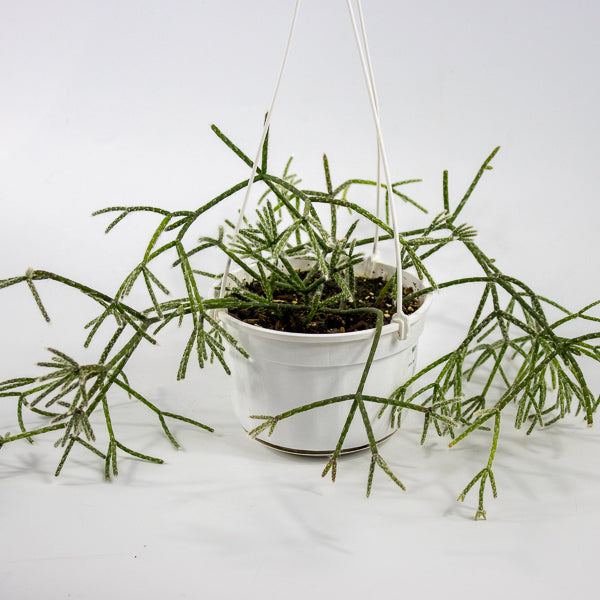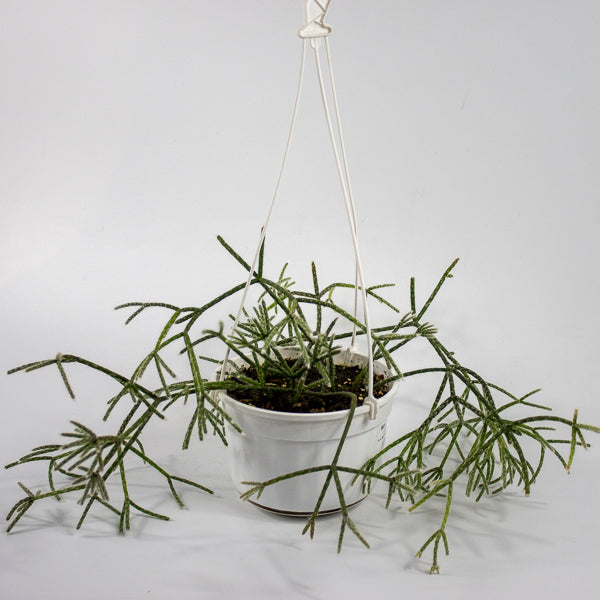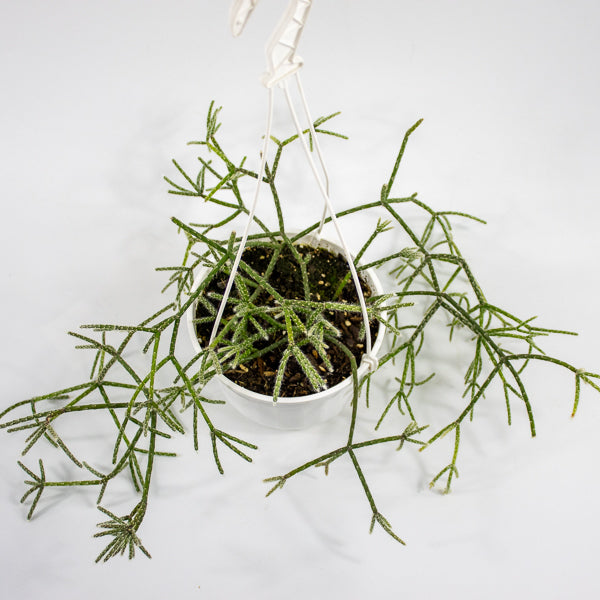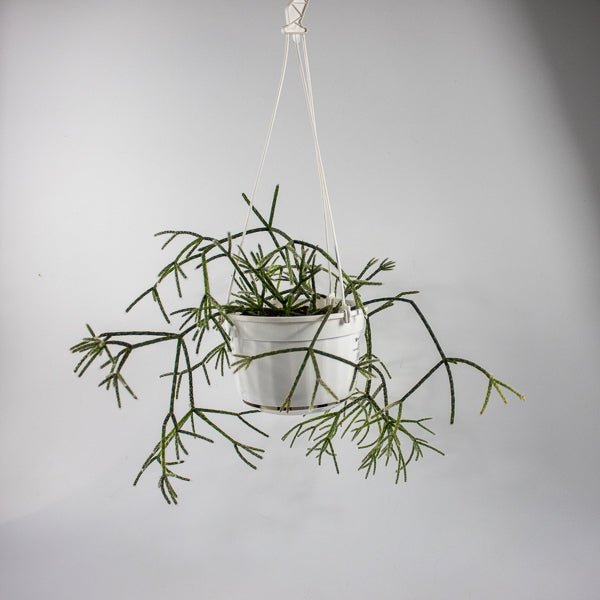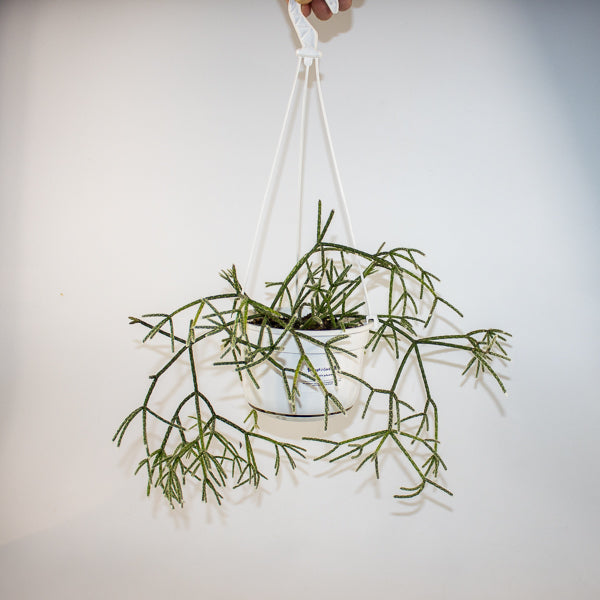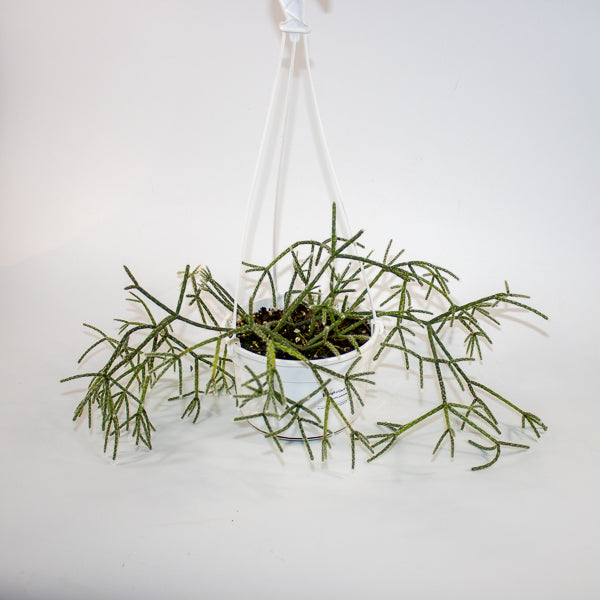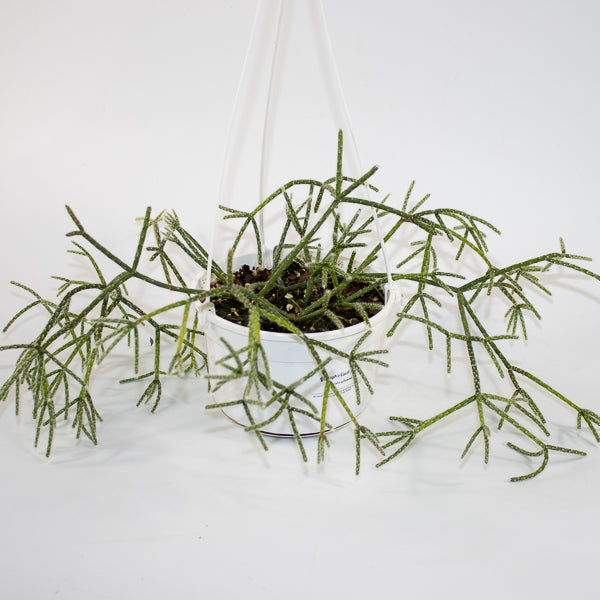1
/
of
7
Emm's Plant House
Rhipsalis pilocarpa -Hairy-fruited wickerware cactus 14cm H30cm
Rhipsalis pilocarpa -Hairy-fruited wickerware cactus 14cm H30cm
Regular price
£20.00 GBP
Regular price
Sale price
£20.00 GBP
Unit price
/
per
Taxes included.
Couldn't load pickup availability
Rhipsalis pilocarpa, commonly known as the Hairy-fruited Wickerware Cactus, is a unique and fascinating cactus species that stands out for its unusual, hair-like spines and elongated, slender stems. Native to tropical regions in Central and South America, this epiphytic cactus thrives in shaded, humid environments, where it can be grown in hanging baskets or containers. Its delicate appearance and low-maintenance nature make it an ideal plant for indoor spaces with indirect light.
- Full Botanical Name: Rhipsalis pilocarpa
- Common Names: Hairy-fruited Wickerware Cactus
- Country and/or Region of Origin: Native to tropical regions in Central and South America
- Growing Conditions in Native Habitat: Grows as an epiphyte in tropical rainforests, thriving in shaded areas with high humidity and well-draining, organic-rich soil
Care Guide
Care Guide
Share
